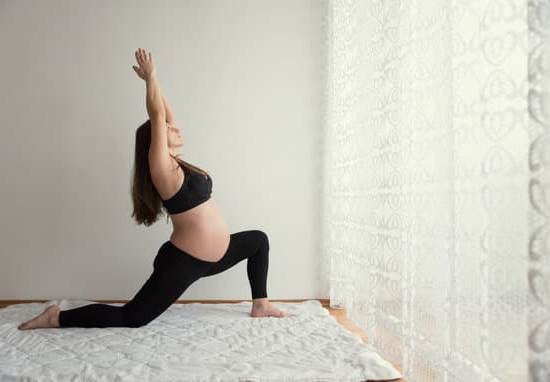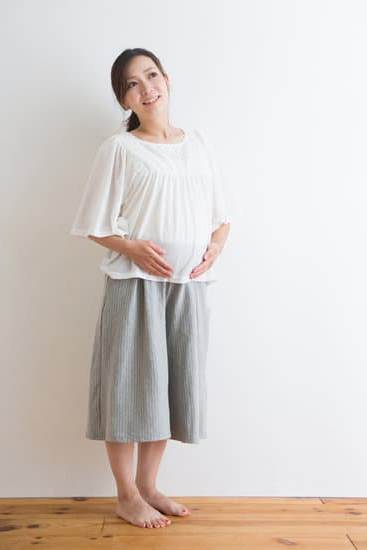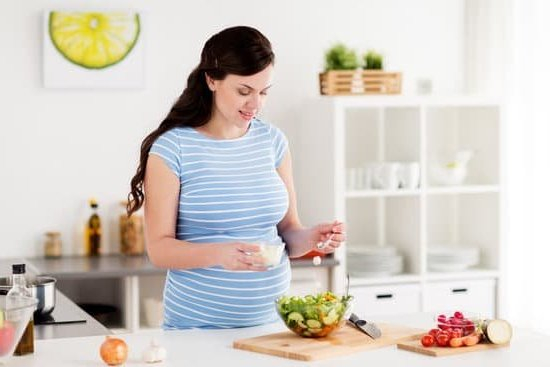: What You Should And Shouldn’t Eat
Polycystic ovarian syndrome (PCOS) is a hormonal disorder that can cause infertility. If you have PCOS, your ovaries may produce too many male hormones (androgens). This can interfere with your ability to ovulate and make it difficult to get pregnant.
A healthy diet is important for anyone trying to conceive, but it’s especially important if you have PCOS. Here are some tips for eating healthy when you have PCOS:
– Eat plenty of fruits and vegetables.
– Eat whole grains instead of processed carbs.
– Avoid sugary drinks and snacks.
– Include healthy fats in your diet, such as olive oil, nuts, and avocados.
– Get regular exercise.
– Drink plenty of water.
– Talk to your doctor about taking a multivitamin and mineral supplement.
What you should eat:
– Fruits and vegetables: Eat plenty of fruits and vegetables to get the nutrients your body needs. Choose colorful fruits and vegetables for the most antioxidants and nutrients.
– Whole grains: Choose whole grain breads, pastas, and cereals instead of processed carbs. Whole grains are high in fiber and nutrients, and they can help regulate blood sugar levels.
– Healthy fats: Include healthy fats in your diet, such as olive oil, nuts, and avocados. Healthy fats can help regulate blood sugar and cholesterol levels, and they can help you feel full after a meal.
– Protein: Protein can help you feel full and maintain muscle mass. Choose lean protein sources, such as grilled chicken or fish, tofu, and legumes.
What you should avoid:
– Sugary drinks and snacks: Sugary drinks and snacks can cause blood sugar spikes, which can interfere with your ability to ovulate.
– Processed carbs: Processed carbs, such as white breads and pasta, can cause blood sugar spikes and weight gain.
– Trans fats: Trans fats are unhealthy fats that can increase your risk of heart disease. Avoid fried foods and processed snacks that contain trans fats.
– Alcohol: Too much alcohol can interfere with your ability to ovulate and can also lead to weight gain.
– Caffeine: Caffeine can interfere with your sleep, which can interfere with your ability to ovulate. Try to limit your caffeine intake to no more than 300 mg per day.
Hip To Waist Ratio Fertility
There is a strong correlation between hip to waist ratio and fertility.
The hip to waist ratio is a calculation of the waist circumference divided by the hip circumference. A study published in the journal Human Reproduction found that a woman’s chance of becoming pregnant each month was about 20% higher when her hip to waist ratio was in the optimal range of 0.7 or lower.
The reason for this correlation is not completely understood, but there are a few possible explanations. One theory is that a woman’s waist to hip ratio is a marker of her overall health and reproductive potential. Abdominal fat is linked with increased levels of estrogen and other hormones that can interfere with ovulation. Another theory is that the ratio of fat around the hips and buttocks is more indicative of reproductive health than overall body weight. Fat around the hips and buttocks is considered to be “good” fat, because it is an indication of healthy levels of estrogen and other reproductive hormones.
Whatever the reason, the hip to waist ratio is a good indicator of fertility, and women who are trying to conceive should aim for a ratio of 0.7 or lower.
Folic Acid Fertility
There is a lot of buzz around folic acid and its impact on fertility. But what does the research say? And more importantly, what should you do if you are trying to get pregnant?
Folic acid is a water soluble vitamin that is found in leafy green vegetables, legumes, nuts, and fortified foods. It is important for pregnant women because a lack of folic acid can lead to a birth defect called neural tube defect.
Recent research has shown that folic acid may also play a role in fertility. One study showed that women who took folic acid supplements were more likely to get pregnant than women who did not. Another study showed that women who had high levels of folic acid in their blood were more likely to get pregnant than women who had low levels of folic acid.
So what should you do if you are trying to get pregnant? If you are trying to get pregnant, you should make sure you are getting enough folic acid. The recommended daily intake of folic acid is 400 micrograms. You can meet this requirement by eating a healthy diet and taking a multivitamin that contains folic acid.
Does Caffeine Affect Fertility
?
There is no one definitive answer to this question. Some studies have shown that caffeine does not have a significant impact on fertility, while others have suggested that caffeine may decrease fertility in both men and women. The reason for this discrepancy is that caffeine’s effects on fertility are highly dependent on the individual. Some people are very sensitive to the effects of caffeine, while others can consume large amounts without any negative consequences.
Caffeine is a stimulant that is found in coffee, tea, soft drinks, and chocolate. It works by blocking adenosine receptors in the brain, which leads to an increase in adrenaline. Adrenaline is a hormone that is responsible for the “fight or flight” response, and it can cause a number of side effects, including an increase in heart rate and blood pressure, and a decrease in fertility.
The negative effects of caffeine on fertility are most pronounced in women. Caffeine can interfere with the production of hormones like estrogen and progesterone, which are essential for ovulation and implantation. It can also increase the risk of miscarriage and premature birth.
Caffeine can also have negative effects on fertility in men. It can decrease the production of sperm and the quality of sperm. It can also cause erectile dysfunction and decrease the amount of testosterone in the body.
If you are trying to conceive, it is best to avoid caffeine altogether. If you can’t give up your morning cup of coffee, try to limit your intake to no more than two cups per day. If you are experiencing difficulty getting pregnant, it may be worth giving up caffeine altogether to see if that makes a difference.
Buy Fertility Pills Online
Fertility pills are medications that are taken by women who are trying to get pregnant. There are many different types of fertility pills, and they all work in different ways. Some fertility pills contain hormones that help to regulate the menstrual cycle, while others contain hormones that help to increase the chances of getting pregnant.
There are many different reasons why a woman might need to take fertility pills. She might have irregular periods, she might have polycystic ovarian syndrome (PCOS), or she might have endometriosis. She might also need to take fertility pills if she is trying to get pregnant and is having trouble conceiving.
There are many different types of fertility pills available, and each one has its own set of benefits and risks. It is important to talk to a doctor before taking any fertility pills, especially if you have any health conditions.
If you are interested in taking fertility pills, it is important to talk to your doctor to find out which type of pill is right for you. There are many different types of fertility pills available, and each one has its own set of benefits and risks. It is important to talk to a doctor before taking any fertility pills, especially if you have any health conditions.

Welcome to my fertility blog. This is a space where I will be sharing my experiences as I navigate through the world of fertility treatments, as well as provide information and resources about fertility and pregnancy.





